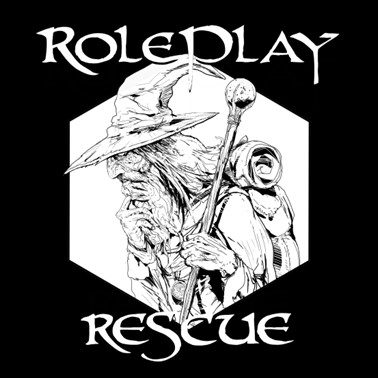It’s not a new assertion to suggest that roleplaying games offer us an experience of emergent story. This is the idea that as decisions are made by the players and those decisions play out within the context of the world, a pattern of story rises up and becomes visible to us.

What surprises me is that so many people don’t trust that this process of emergence will happen. Instead, the choice is made to corral and force the pattern, to impose on the decisions of the players a sequence of prescribed actions which will (it is claimed) lead to a satisfying story being told.
But to be human is to be the pattern maker.
Humanity is naturally aligned to the process of taking in all of the myriad sensory details of the world around us and forming it into a pattern we can describe. In other words, as humans we impose meaning on every thing we perceive. We are surrounded by meaning which is generated, as it were, through ourselves.
Why would it be any different at the table? As the individual facts of the game we are playing – the characters, the places, the actions, the items, the creatures, everything that is described – emerge into the field of our imaginary perception, we will naturally select the details which have meaning.
It is natural for us to notice the pattern which emerges. In fact, it is natural for us to decide to take the decisions which – even if they are less optimal in a strictly game sense – are most optimal in matching the pattern which we perceive to be emerging.
If we notice the pattern of the sacrificial hero emerging in the game, we are perhaps willing to give up our beloved character and complete that story through their meaningful death.
We all recognise the pattern of the descent into the Underworld, into the dark caves that lie beneath the world wherein terrifying monsters exist, for a purpose – such as to retrieve a needed item or rescue a beloved friend.
I propose that we trust each other at the table to naturally and collaboratively allow the stories of our heroes to emerge.
We don’t need to impose structure because we are built to recognise the way in which each story goes. As the clues emerge – the facts accumulate and the pattern begins to be suggested – we are each capable of recognising and yielding our desires to the needs of the story.
Or not.
We can, of course, choose to adhere to the desire to win through the optimisation of the game rules. Or to simply accumulate the descriptive details and stack up an ever-growing pile of facts – the characters, the places, the actions, the items, the creatures, or whatever – to paint a beautiful landscape.
I would make the application of the rules balance with the idea of sharing and weaving a rich emergent story within a seemingly living and detailed world, all worthy of exploration. I would choose an amazing Otherworld and robust rules, yes, but I would also choose to tell the tale through the choices made by the heroes.
Can we trust each other to weave this tapestry together at the table?
Game on!
